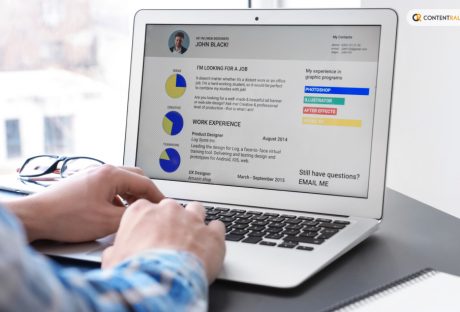Unique interview questions to ask employer?
But are you supposed to ask questions as a candidate?
Who said an interview is a one-way process? As a potential candidate, are you only there to answer their question and prove your worth?
Please remember you are also assessing the workplace to understand whether the workplace is fit for you. It would help if you asked questions to ensure you are joining the right place.
Now, we all know basic questions like job roles and salary negotiation. However, asking the right questions can improve your interview experience.
The to-and-fro communication can create a memorable experience for your employer, compelling them to give you a callback.
Therefore, swallow your anxiety and start making the most of your interview. Especially if this is your ultimate dream job and you are well prepared to get it.
However, you shouldn’t have to think and prepare these questions when you can get a compiled list from your predecessor all over the internet.
So, without further ado, let’s get into the unique interview questions to ask the employer.
Unique Interview Questions to Ask Employer – 10 Questions About the Work

Here are the ten unique questions you can ask about the work. Because asking questions should also be a part of your interview prep.
1. Do you offer opportunities for cross-departmental collaboration, and how can I get involved in such projects?
2. How does the company measure success in this role, both in the short term and long term? Plus, are they just quantitative, or their qualitative measures as well?
3. Can you please share an example of a recent project where the team exceeded expectations? What made it successful?
4. How does the company prioritize work-life balance, and are any specific practices or policies in place to support it?
5. What are the most significant challenges the team is facing? Additionally, how can we overcome it with my skills?
6. How does the organization encourage continuous learning and development within the team?
7. What role does innovation play in our department, and how do you typically receive new ideas from employees?
8. Can you give me an insight into the company’s long-term vision and how my role fits into achieving those goals?
9. What key skills have led to success for individuals in this role or in this company?
10. How does the company approach feedback and performance reviews? Additionally, what can I expect in terms of ongoing communication and support?
Unique Interview Questions to Ask Employer – 10 Questions About Your Team

If you are going for a role that requires you to hold a leadership position, or you are a fresher joining a new team, understanding your team is important. Therefore, queries about your team should be one of the crucial questions to ask in an interview.
1. What is the current team strength, and how can I help leverage the strength for optimal growth?
2. How about conflict? Is the team more prone to conflict? If yes, how can I help deal with any form of disagreement?
3. What is the current team dynamic? What kind of personalities am I going to encounter?
4. Can you tell me your team’s immediate priorities?
5. Is the team currently dealing with any problem delaying its productivity? Can I help the team in any way?
6. What about success? How do we acknowledge & celebrate the big and small successes as a team?
7. Does the team conduct meetings to understand the different challenges each member faces or what the team is facing in general often?
8. How does the team show their support to each other in terms of professional and personal problems?
9. Do we have access to professional tools? Is the senior management willing to take suggestions regarding paid tools that can ease the team’s work?
10. Finally, what unique role does each member play in the team besides their everyday job role?
Unique Interview Questions to Ask Employer – 10 Questions About Your Own Future & the Company’s

We all join an office with a certain personal plan. Therefore, questions confirming that your plan aligns with a company’s are important. Think about asking at least one or two of the following questions.
1. I have a two-year plan. If I plan to stay in this company for the next two to three years, what opportunities can help align my personal plan?
2. What is the minimum time for a promotion? Plus, is there any exceptional case for this?
3. Are there any upcoming projects in which I can take an active part and improve through real-time experience?
4. How do you see me grow in your company? What are you expecting from me in terms of career growth?
5. In my potential job role what are some of the analytical or conceptual skills you expect me to improve?
6. How often will the senior management or my team manager give me feedback on my work?
7. Is there any soft skill I need to build to do better in my current team?
8. How does the company encourage employees towards creative challenges & innovations?
9. Is there any current roadmap for the company’s growth?
10. How frequently do you reassess roles & responsibilities within a team or even cross-team?
Unique Interview Questions to Ask Employer – 10 Questions to Ask About the Office Environment

No matter how good the role, team, or salary is, getting your job done every day could be detrimental if you are not getting a positive environment. Therefore, try to sneak in some of these questions regarding the office environment.
1. What is the company doing to improve cross-team & employee bonding?
2. Is there any strict policy against office politics & discrimination that can create an unhealthy working environment?
3. Has the company implemented a POSH (Policy of Sexual Harassment)?
4. What are some of the unspoken rules & disciplinary measures on the office floor that I should be aware of?
5. Can you please tell me some of the new changes made in the office policy to improve the overall environment?
6. What about hybrid work? Will I be asked to come to the office for a few days without prior notice?
7. When working from home am I permitted to leave town, or do I need to place an official notice?
8. What is the policy regarding informal networking post office hours with my team for relationship-building?
9. How about office desk personalization? Is there any formal or informal policy regarding it?
10. What is the balance between formal & informal communication in the team?
10 Challenging Questions – Questions about Challenges

These unique interview questions cannot end without asking some of the questions regarding the corporate challenges of the company. After all, no job is all bed of roses and sunshine. Yes, there will be challenges, the trick is always to be aware of the common problems.
These questions are also important to ask if you want to detect some interview red flags early on.
- What are the most significant challenges this team currently faces, and how are they being addressed?
- Can you share an example of a recent challenge the company overcame and the lessons learned from it?
- What are the biggest challenges you foresee for someone stepping into this role?
- How does the company approach problem-solving when faced with unexpected challenges?
- What are some common challenges new employees face during their first six months here?
- How does the company support employees in overcoming challenges related to work-life balance?
- What are the main obstacles the company anticipates in achieving its long-term goals?
- How does the leadership team communicate and manage challenges affecting the company?
- What strategies are in place to handle rapid growth or expansion challenges?
- Can you describe a time when the company faced a major challenge that tested its core values? How was it handled?
What’s Next – 5 Next Steps About the Interview Process

Finally, let’s get into the top questions to help you understand what comes next in the interview process.
1. What is the next step of this interview process?
2. When can I expect to hear from you again?
3. Will you let me know the results even if I am not accepted for the role? Plus, how long will that take?
4. What is a good time before I could follow up?
5. Can I share any further documents with you?
Finally, do more than lead the interview with your own queries. Yes, also show gratitude towards the interviewers and thank them for their time. You can also send them a thank you mail 24 hours after the interview.
Remember this mail is not a follow-up to the interview. Yes, you can subtly ask about the results, but the subject matter of the mail would be a simple thank you.
The Final Note!
Remember, an interview is as much about you evaluating the company as it is about them assessing you.
By asking thoughtful and unique questions, you demonstrate your genuine interest and gather crucial information to make an informed decision.
Whether it’s about the role, team dynamics, or company culture, your inquiries can uncover the deeper realities of the workplace.
Use this opportunity to ensure the company aligns with your career goals and values. And don’t forget to express your gratitude for the interview opportunity—your positive demeanor can leave a lasting impression. Good luck!
Read Also:
- Red flags of a job interview: 8 reasons to turn down an offer
- 6 Things You Must Do to Prepare for a Video Interview






















